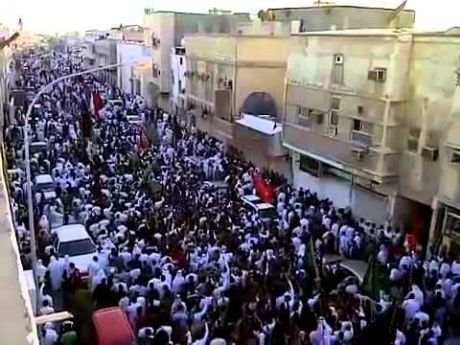News
You are here
Saudi Arabia: ongoing protests against Western-backed oppression

November 22, 2012
In an effort to avoid the revolutionary zeal that has spread across North Africa and the Middle East, Saudi Arabia has banned public protests and invested roughly $130 billion in benefits for its citizens over the last two years. Despite these attempts to subdue the population, public protests have been occurring regularly in Saudi Arabia since February 2011.
Most of the protests have occurred in the city of Qatif, which is located in Saudi Arabia’s oil-rich Eastern Province, and is largely in response to the political, economic and religious persecutions of Saudi Arabia’s Shi’a minority. The protesters have been branded as Iranian puppets intent on destabilizing the national economy as Saudi Arabia and Iran vie for Middle Eastern supremacy. However, these protests constitute an important expression of the broader struggle for human and civil rights within Saudi Arabia. Saudi human rights activists are fighting for the creation of a constitutional monarchy, parliamentary elections, the release of political prisoners being held without trial or representation, the end of royal corruption, the reform of the judicial system and, and the curtailment of the religious establishment’s political power.
According to Ebtisam Al-Labad, the sister of slain protestor, Khalid Al-Labad, “We only come out to demand legitimate rights, and they call us terrorists. They are afraid of the truth. They don’t want people to speak. They want people to be like sheep.” It is the political, military and financial protection afforded to Saudi Arabia by Western countries that sustains the basis of their political power. This is why the fight for human and civil rights in Saudi Arabia must receive more attention from the international community.
Section:
- Log in to post comments










